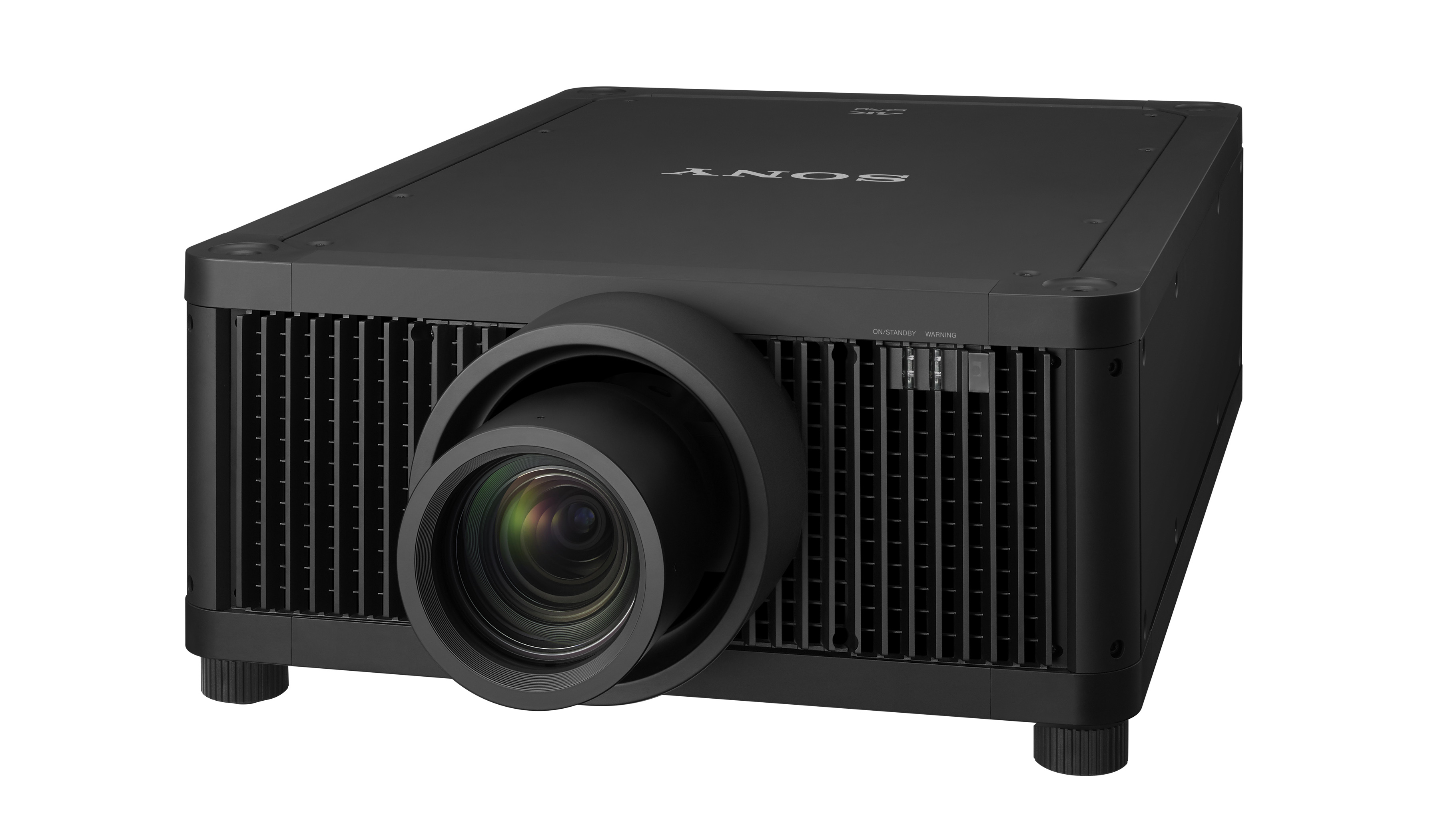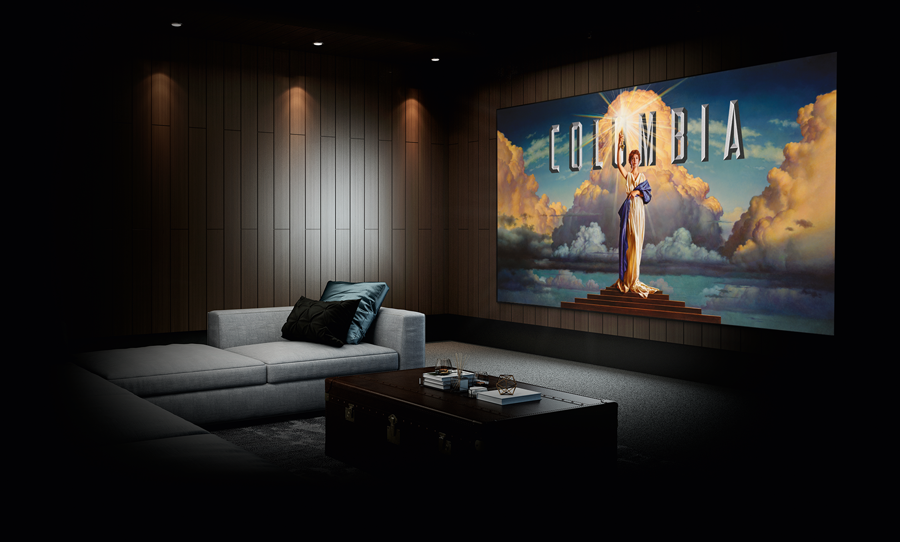Sony has unveiled a new range of laser and bulb projectors for 2020, including a flagship model that boasts a 10,000 lumens brightness.
We usually expect 3,000 lumens from more premium projectors, making the new VPL-GTZ380 an ultra-bright entry into the market. Sony's Digital & Home Cinema product manager, Christopher Mullins, says the model “will change the way projection is viewed.”
“It’s a true HDR projector,” Mullins adds, “at twice the brightness of our previous flagship”.
With 100% of the DCI-P3 color space on show, too, for expanded color accuracy – rather than the 97% we usually see on flagship models – it's clear that Sony is keen on maxing-out the specs of this new beamer.
(At 50kg, it’s a pretty heavy projector, too, so we don’t recommend installing this into your ceiling without professional help.)
10,000 lumens equates to around 600-700 nits on a TV display, meaning, adds Mullins, that you’re getting “the same brightness you’d get on an OLED panel – but on a 4-5 meter screen”. He also says we can expect “tonal blacks in deep shadows”, with a focus on contrast and resolution alongside the high brightness stats.
“There are projectors out there that offer high lumens but not the contrast performance,” Mullins tells us. “SXRD [Silicon X-tal Reflective Display, a LCOS technology used by Sony] is eight times the contrast of a DLP [digital light processing] panel.”
- What are the best projectors?
- What is HDR?
- Here's how to make the perfect home cinema system
Ultimate champ
Brightness isn’t the only trick up Sony’s sleeve here, either. The remarkable X1 Ultimate processor used in Sony’s high-end Bravia OLED TVs has been put to work too, with a modified projector-ready chip to elevate the images on display.
“It’s an optimized chipset for projectors, but we used a lot of technologies used in our TVs too,” says Mullins.
The X1 Ultimate – in Sony’s TV range at least – is known for best-in-class upscaling and superb motion handling, and we hope/expect that to translate to this new projector range.

Only the flagship model is getting this chip, though, with the other two models making use of a more standard X1 for Projector chip.
The other models include the VPL-VW790ES, which replaces the VPL-VW760ES. At £12,000, it’s less pricey than the flagship, and only outputs at 2,000 lumens, though still with a laser projection system and native 4K.
There’s also the VPL-VW590ES, which is a lamp projector, so won’t quite have the fast on-off function or the same shelf life as its laser siblings (given that lamps degrade faster). This latter model is, however, the first Sony lamp projector to get a Digital Focus Optimizer function, which Mullins says will compensate for the optical blur of the lens.
All three new models make use of a dynamic HDR enhancer for “optimized frame-by-frame enhancement for HDR”, to ensure that blacks stay black and bright objects can stand out against their background, without increasing video noise.

Project your legacy
Mullins is quick to point out that Sony made the first-ever native 4K projector – back in 2011 – to position the brand’s home cinema arm as at the forefront of innovation.
It’s increasingly a crowded market, though, especially after the flurry of projector announcements during IFA 2020. Samsung, for one, made headlines with the world’s first HDR10+ projector, the Premiere, which couples 4K HDR projection with dynamic scene-by-scene metadata, Samsung’s brilliant Tizen OS, and some hefty audio capabilities.
The new LG CineBeam HU810P projector, meanwhile, boasts a 300-inch projection – with the option to adjust the image size to as little as 40 inches.
- Check out the best projector prices this month
from TechRadar - All the latest technology news https://ift.tt/3k0lBWD
via IFTTT


0 التعليقات: